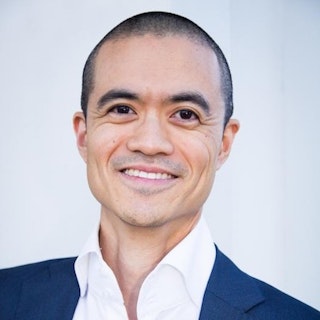Defining your personal brand: what are your attributes & skills?
This article is the first in a 2-part series on defining your personal brand.

/ Photo by Katie Rodriguez on Unsplash
Sometimes, our lives move so fast that we don’t always stop to assess where we’re going, whether our current career goals are truly aligned with what we desire for our lives. I’ve certainly been guilty of that myself. However, when taking on a new role or facing a turning point in your career, you may often find yourself reevaluating who you really are, what you stand for, and ultimately, how to align your professional career with your core identity. In other words, defining who you are as a brand.
I spend a lot of time coaching people during times of change in their careers, and the topic of personal branding often comes up. After working 10 years as a brand marketer, I can’t help but notice the parallels between defining a consumer brand and defining your personal brand. At its core, a brand is the collection of functional and emotional benefits delivered to an end consumer. Similarly, your personal brand is the collection of your skills and personality that comes through in your interactions with others and the work you do.
Being clear on who you are as a brand can help you leverage your strengths, define your contributions to a team, and communicate your unique value to others, whether during an annual review or a job interview. In speaking with people who are facing a turning point in their career, whether taking on a new role within their company or making a career shift, I’ve found those who are clear on their personal brand have the greatest clarity and confidence in deciding how best to move forward.
If you want to more clearly define your unique personal brand, I’d suggest starting with a few key questions, leveraging some consumer brand management concepts. My focus here is on your professional career, but your brand can and should extend to the rest of your life too. In the first of this 2-part piece, I’ll focus on the foundations of your personal brand—your attributes and skills. Then, in the subsequent piece, your personality and legacy.
1) What are your attributes?
At the most basic level, every product is made up of attributes—the objective, indisputable characteristics that define a product’s identity. For example, an automobile, a bar of soap, or a pair of sunglasses. This classification is often straightforward, but becomes trickier with products at the intersection of two different categories. Think larger-screened smartphones that could be classified as either phones or tablets.
Similarly, your personal brand is composed of many attributes. Making an intentional choice about which core aspects of your professional profile you want to highlight will create a solid foundation for the rest of your brand identity. Here are 3 questions to get you started:
- What are the key attributes that define what you are as an individual?
E.g., age, gender, nationality, religion, socio-economic background, etc.
- Professionally, what is the most appropriate way to classify what you do? E.g., Marketer, Brand Strategist, Creative Consultant, etc.
- What other professional titles or designations relate to how you spend your time? With portfolio careers becoming more common, more than one "title" may apply to you. E.g., Speaker or Board Member.
2) What are your skills?
Once you have objectively defined a product, you can begin to layer on functional benefits, the technical qualities of a product. This helps to differentiate branded products from commoditized products and separates branded products from generic equivalents within the category. For example, a brand like North Face may highlight functional attributes of their coats like effective heat insulation, water resistance, wind proofing that creates superiority over generic competitors.
Along those same lines, when it comes to your personal brand, your skills, professional qualifications, and specialised education also help you stand out. I’m talking mostly about technical skills that could range from analysing market research to developing strategic brand campaigns. However, softer skills also come into play.
- What are your top 3 technical or functional skills? E.g., IRI XLeratePlus analytics, budget management, media planning.
- What are your top 3 transferrable or softer skills? E.g., cross-functional teamwork, persuasion, leadership.
- Which skills are you most proud of? Once you have a list of your skills, be selective about which to highlight when communicating with others.
Asking yourself these questions and getting clear on your key attributes and skills takes effort and time, but doing so will lay the foundation of your personal brand. The ultimate goal with this exercise is to create a strong personal brand for yourself, one you can proudly express, one that allows you to be truly authentic in everything you do across all facets of your professional and personal life.
In my next article, I'll address personality and legacy as further differentiators for your personal brand. In the meantime, I’d welcome any input you have on other brand-specific tools you feel could be helpful to others eager to define their personal brand.
Joseph Liu is a Brand/Career Consultant, Speaker, and Founder of Ilumity Coaching. He specialises in helping professionals and business owners develop their brands and relaunch themselves during times of transition in their careers, organizations, and lives. He has a passion for combining branding and coaching to help reignite people’s careers, leveraging 10 years of international brand management & marketing experience on brands including Glad, Liquid-Plumr, Gü Puds, and Häagen-Dazs. Joseph has been a featured speaker at TEDx and MarketingWeek Live. He was awarded his Associate Certified Coach (ACC) credential from the International Coach Federation, MBA from the University of Michigan, Ross School of Business, and Bachelors of Arts in Psychology from Northwestern University.

